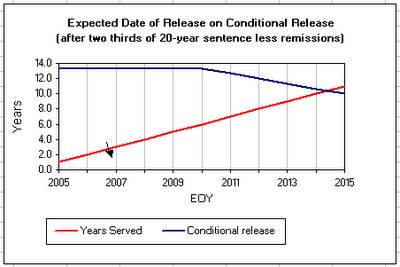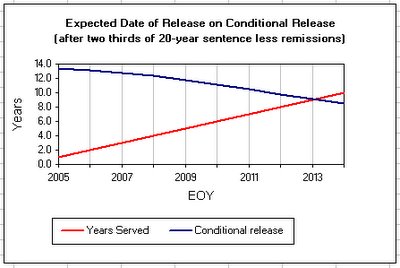Marijuana: the facts
The first thing that caught by attention when I heard about Schapelle Corby was the absurdity of a possible death sentence for a soft drug like marijuana. When I started campaigning for her I noted two surprising difficulties in attracting support for Schapelle:
1. Many Australians were unfussed by draconian penalties for anything. I’ll talk more about this in a subsequent post.
2. Many Australians saw no significant difference between marijuana and heroin.
I was astonished at the latter point. I had thought that marijuana was something that most students had tried at some stage in their youth – a rite of passage if you like – and was widely regarded as a safe way for teenagers to demonstrate some mild rebellion. Whereas heroin was regarded as a soul-stealing killer. It seems I was very wrong about people’s perceptions.
As the Schapelle support juggernaut swept along, there was a clear attempt by some political and media leaders to portray marijuana as a highly dangerous drug. We were told that the modern MJ is far more dangerous than the product we might remember from our youth. And that it was highly likely to lead to mental problems. And that it was a first step on the way to heroin addiction. That last one particularly surprised me since I know of many people who have tried MJ but nobody who has tried heroin.
I also read a number of justifications by Indonesian politicians and officials that proclaimed the need for severe sentences because drugs kill. Yet no recognition was made that marijuana doesn’t kill and Indonesia continues to include marijuana as a category one narcotic with a potential death penalty for trafficking.
So I started researching on the Internet. In summary, I found a vast body of literature proclaiming the safety of MJ, but some more recent scientific research that indicated the existence of a causal link between heavy use and mental problems.
However, in summary:
1. It does not cause brain damage.
2. It is not a gateway drug.
3. It is less dangerous than tobacco.
4. It is less addictive than coffee, and massively less addictive than alcohol, heroin or nicotine.
5. It is not substantially more potent today than in the past (early comparisons failed to recognise that older samples had lost potency over time).
6. Heavy cannabis smokers are a mere 1.5 times more likely to suffer symptoms of psychosis that non-users.
7. It does not lead to death through overdoses or AIDs.
So there you have it. MJ is a non-addictive drug that carries a small increase in risk for heavy users. So, I’m right back where I started. The draconian penalties of countries like Indonesia cannot be justified by any adverse affect caused by the drug. And innocent or guilty there is no excuse for Schapelle to still be in that cage.
1. Many Australians were unfussed by draconian penalties for anything. I’ll talk more about this in a subsequent post.
2. Many Australians saw no significant difference between marijuana and heroin.
I was astonished at the latter point. I had thought that marijuana was something that most students had tried at some stage in their youth – a rite of passage if you like – and was widely regarded as a safe way for teenagers to demonstrate some mild rebellion. Whereas heroin was regarded as a soul-stealing killer. It seems I was very wrong about people’s perceptions.
As the Schapelle support juggernaut swept along, there was a clear attempt by some political and media leaders to portray marijuana as a highly dangerous drug. We were told that the modern MJ is far more dangerous than the product we might remember from our youth. And that it was highly likely to lead to mental problems. And that it was a first step on the way to heroin addiction. That last one particularly surprised me since I know of many people who have tried MJ but nobody who has tried heroin.
I also read a number of justifications by Indonesian politicians and officials that proclaimed the need for severe sentences because drugs kill. Yet no recognition was made that marijuana doesn’t kill and Indonesia continues to include marijuana as a category one narcotic with a potential death penalty for trafficking.
So I started researching on the Internet. In summary, I found a vast body of literature proclaiming the safety of MJ, but some more recent scientific research that indicated the existence of a causal link between heavy use and mental problems.
However, in summary:
1. It does not cause brain damage.
2. It is not a gateway drug.
3. It is less dangerous than tobacco.
4. It is less addictive than coffee, and massively less addictive than alcohol, heroin or nicotine.
5. It is not substantially more potent today than in the past (early comparisons failed to recognise that older samples had lost potency over time).
6. Heavy cannabis smokers are a mere 1.5 times more likely to suffer symptoms of psychosis that non-users.
7. It does not lead to death through overdoses or AIDs.
So there you have it. MJ is a non-addictive drug that carries a small increase in risk for heavy users. So, I’m right back where I started. The draconian penalties of countries like Indonesia cannot be justified by any adverse affect caused by the drug. And innocent or guilty there is no excuse for Schapelle to still be in that cage.



